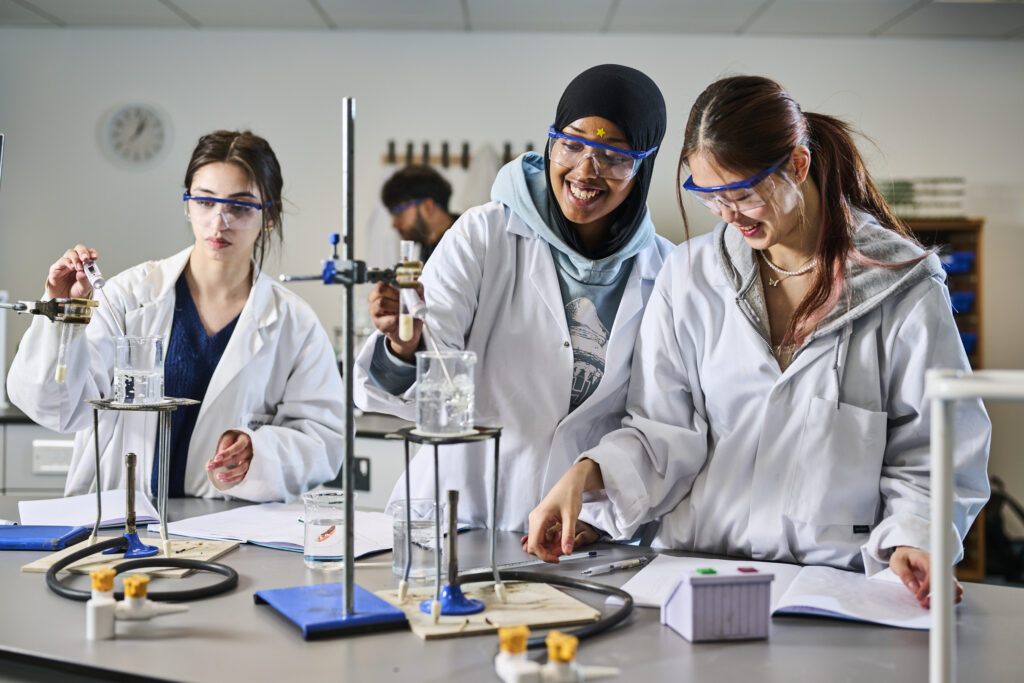A-level Chemistry builds on the learning in GCSE Science. It is particularly suited to students who want to develop essential knowledge, develop a deep appreciation of the skills, knowledge and understanding of scientific method as well as competence and confidence in a variety of practical, mathematical and problem solving skills. Students will develop their interest in and enthusiasm for Chemistry and understand how society makes decisions about scientific issues.
Course Outline
A 2- year linear course split in to 6 modules.
Module 1 – development of practical skills in chemistry
- Practical skills assessed in a written examination
- Practical skills asses in the practical endorsement
Module 2 – Foundations in Chemistry
- Atoms, compounds, molecules and equations
- Amount of substance
- Acid-base and redox reactions
- Electrons, bonding and structure
Module 3 – Periodic table and energy
- The periodic table and periodicity
- Group 2 and halogens
- Quantitative analysis
- Enthalpy changes
- Reaction rates and equilibrium (qualitative)
Module 4 – Core organic chemistry
- Basic concepts
- Hydrocarbons
- Alcohols and haloalkanes
- Organic synthesis
- Analytical techniques (IR and MS)
Module 5 – Physical chemistry and transition elements
- Reaction rates and equilibrium (quantitative)
- pH and buffers
- Enthalpy, entropy and free energy
- Redox and electrode potentials
- Transition elements
Module 6 – Organic chemistry and analysis
- Aromatic compounds
- Carbonyl compounds
- Carboxylic acids and esters
- Nitrogen compounds
- Polymers
- Organic synthesis
- Chromatography and spectroscopy (NMR)
Facilities:
Students on our science courses will benefit from:
- State of the art new science labs
- Up to date equipment – Wifi and BlueTooth® enabled dataloggers for pH, CO2 and temperature
- Digital resources for lessons and independent study.















